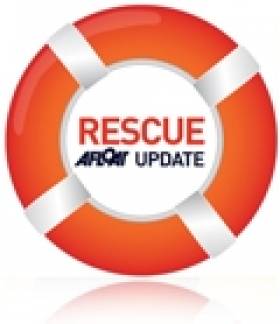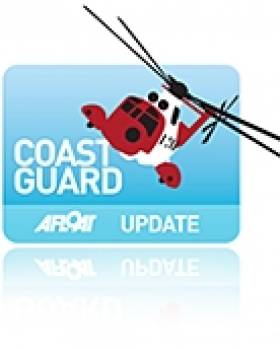Displaying items by tag: MRCC
#Lecture – The Maritime Institute of Ireland presents a fundraising lecture "Coastguard 1822-2014: Hands Round the Country" in the National Maritime Museum, Haigh Terrace, Dun Laoghaire at 7.30pm on Thursday 10th April.
The main emphasis of the talke will be on how the Coastguard has contributed to famine relief, rescue work, its people and notable incidents over almost 200 years. There are some surprising stories, backed up with pictures.
Joe Ryan has a MSc in Emergency Management (Hons) and has worked at MRCC Dublin in operations for almost 20 years and co-ordinated during incidents e.g. FV Carrickatine, R111 (Dauphine at Tramore), Currach at Bellderg cave and many more.
Lecture tickets cost €10 and are to help promote Maritime Heritage. For bookings contact Joe Ryan at email: [email protected] or the museum's email: [email protected] or directly contacting the Maritime Museum Tel: (01) 214 3964 which is open 11am - 5pm daily.
Woman Rescued from Water at Howth Head
Irish Coast Guard helicopter Rescue 116 was on hand Wednesday to save a woman seen in the water close to cliffs near the Baily Lighthouse on Howth Head.
SAR Ireland reports that the helicopter was on a training exercise just up the coast in Malahide when passers-by raised the alarm with the Marine Rescue Coordination Centre (MRCC).
Rescue 116 sped to the scene and after a short low-level search the woman was spotted and taken to a waiting ambulance at the coastguard base for treatment.
The Irish Times says Howth gardaí are investigating the incident.
UK Coastguard Now Has 40,000 Beacons on its Register
The UK 406 EPIRB Registry based at MRCC Falmouth reached a new milestone this month by registering their 40,000th beacon, meaning the database has doubled in size in three years. The team has worked tirelessly to provide good customer service and maintain operationally valid records and as such the Registry is well respected throughout the SAR world.
The importance of the 406 MHZ beacon was highlighted by the safe rescue of four people from the Yacht Hollinsclough in the deep Southern Atlantic recently. The vessel had two correctly registered beacons which supplied key data to both national and international search and rescue authorities.
Steve Huxley, SAR Communications Manager said:
If you are a boat owner, consider buying an emergency beacon as part of the life- saving equipment fit to your vessel.
Emergency Position Indicating Radio Beacons have proved many times that they have contributed to the saving of lives.































































